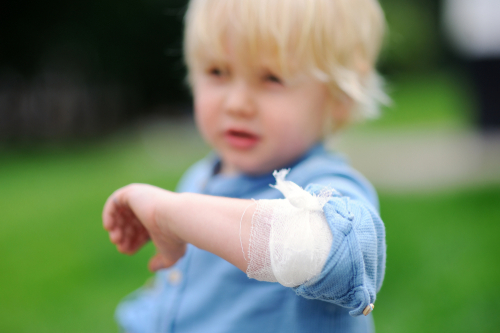Phase 2 Trial Data Validate New Investigator’s Global Assessment Scale
Written by |

Data from a Phase 2 trial validated a new five-point Investigator’s Global Assessment (IGA) scale for the clinical evaluation of patients with epidermolysis bullosa simplex (EBS), the scale’s developer, Castle Creek Pharmaceuticals (CCP), announced.
In September 2017, CCP presented the five-point IGA scale that defines skin symptoms as clear, almost clear, mild, moderate, and severe. This classification is based on the presence or absence of blisters and additional factors such as blister size, erosions, crusting, and skin redness (erythema).
The IGA scale was developed to help clinicians evaluate the average overall severity of EBS lesions in clinical trials.
“Developing therapies for rare skin diseases like EBS comes with certain challenges because there is often limited or no prior clinical research providing disease progression insights that can serve as the foundation for clinical endpoints,” Greg Licholai, president and chief medical officer at CCP, said in a press release.
“As we work to support an underserved patient population, we have a responsibility to develop effective protocols that can be applied to current and future clinical studies, and we believe this new IGA scale is a tremendous step forward for EBS research,” Licholai added.
In the multicenter Phase 2 trial of CCP-020, a diacerein 1% ointment being developed by CCP for the treatment of EBS, investigators used blister count reduction as the primary method of assessing efficacy. The trial enrolled 17 patients who were treated for four weeks with CCP-020, followed by a three-month follow-up period.
Analysis of the clinical data showed a 60% reduction in blistering in treated patients compared to 15% in the placebo group. CCP-020 also showed long-term benefits for patients by preventing blisters from forming over a longer period of time.
To validate the newly established IGA scale, investigators reviewed photographs of affected body locations collected from patients during the CCP-020 Phase 2 study.
The IGA scale showed that about 58 percent of moderate-to-severe CCP-020-treated lesions achieved clear or near clear status and a two-point reduction in the IGA scale from baseline. Additionally, the new analysis showed that lesions treated with CCP-020 presented a significantly greater mean reduction in IGA score from baseline compared to those treated with a placebo (2.4 versus 1.7, respectively).
“A novel disease-specific 5-point IGA scale may be useful to better evaluate new treatments for people living with EBS,” said Johann Bauer, MD, MBA, HCM, head of the University Clinic for Dermatology of the SALK/Paracelsus Medical University and the study’s principal investigator. “This analysis confirms treatment effects in EBS patients based on published data from the Phase 2 study of CCP-020.”
The company is planning to include the IGA scale in the ongoing Phase 3 DELIVERS study (NCT03154333) to evaluate the efficacy of CCP-020 in patients with moderate-to-severe EBS.





